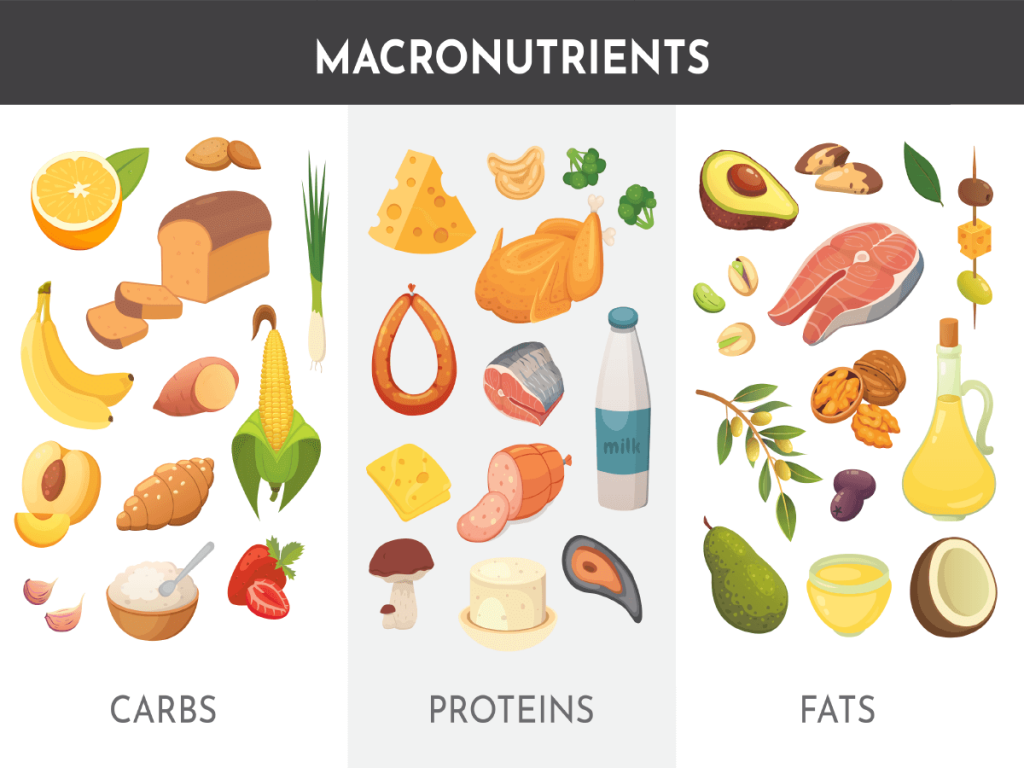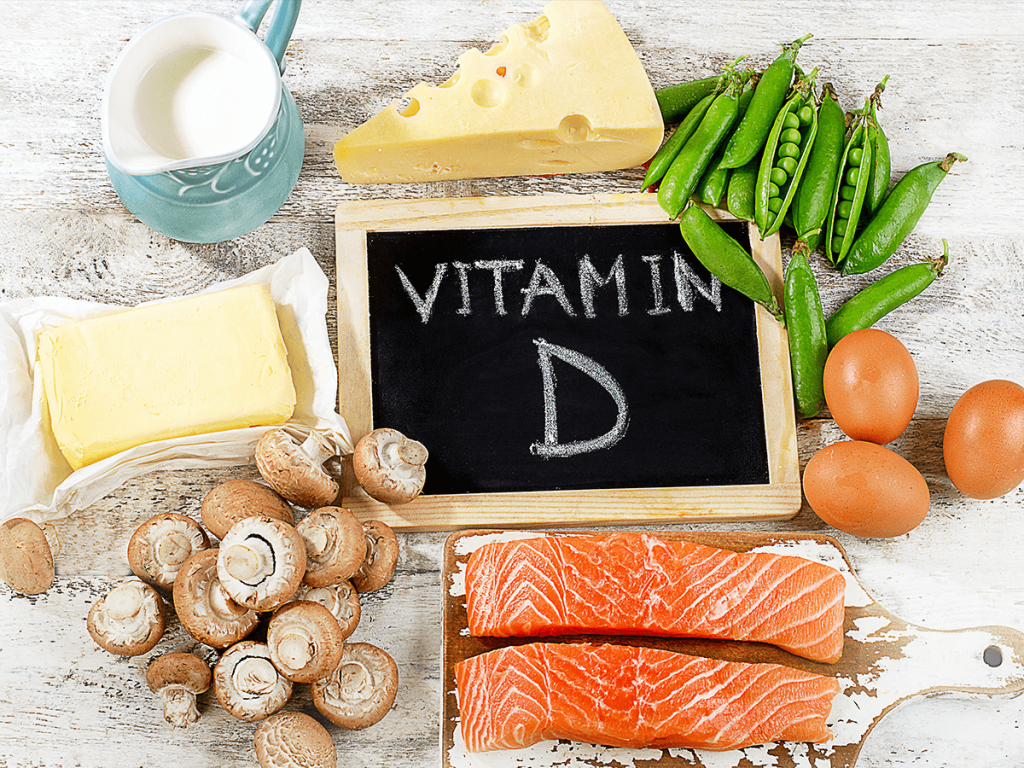Eating a little bit healthier is on most of our agendas. We might go through waves of motivation, but striving for a nutritious and healthy diet is something many of us try and do.
But when health has become such a marketplace for overpriced meals, drinks, and snacks with questionable benefits, it can be really tricky to know what to prioritise in our diet.
So, if you’re looking to make sustainable, healthy, and nutritious changes to what you eat each day, here’s what you want to include.
Let’s start with macros.
There are 3 major macronutrient groups, and every food falls into one of these camps. Carbohydrates, proteins, and fats. Our body needs a bit of everything to carry out the processes it does for us daily.
Carbohydrates are the body and brain’s preferred source of energy. It’s easy to convert, meaning when we’re really active, our body uses carbs to keep us going. Fibre is included in carbs, and we all know how important that is for gut health.
Protein is a vital nutrient that makes up most of the tissues in our body. It helps our cells repair, rebuild, recover, and grow in their cycles.
Fats have a wide-spanning role in the body, including cell formation, hormone and enzyme regulation, organ protection, vitamin storage, and providing energy. The list keeps going.
Of course, the picture is a little bit more complex than this. But despite what fad diets suggest, none of these macronutrients are bad.
Carbs aren’t bad for you. Especially ones that aren’t processed and still contain all their nutritional value. Technically, both fruit and vegetables are carbohydrates.
Fat doesn’t make you fat. It can have a higher calorie content for its volume, but the nutritional benefits it holds are huge. Monounsaturated and polyunsaturated fats are best.
When it comes to nutrition and putting beneficial things into our body, the non-processed option is always the one to go for.

It’s all about balance.
The best way to improve your diet is to focus on balance. There’s no need to cut anything out or overly restrict yourself. Aiming for balance is an easy and sustainable way to make improvements that matter. Everything in moderation, as they say.
When looking at your intake, notice what you’re consuming across the day. A third of the food you eat should be fruits and vegetables. Another third should be starchy carbohydrates like bread, pasta, rice, and potatoes. The remaining third should be made up of proteins like meat, fish, eggs, beans, or pulses. Add in some dairy or dairy alternatives too. Small portions of unsaturated oils and spreads finish off the perfect balance.
Focus on adequate amounts of the most nutritious foods that your body needs to do its thing. Eating in this way should be how you do it on most days.
However, health isn’t just physical. It’s mental too. Relationships with food play a big part in lots of people’s mental wellbeing. Processed foods like fast foods, crisps, cakes, snacks are not nutritious. But they are delicious. Restricting yourself by not allowing any of your favourite treat foods at any point in your diet isn’t sustainable. And you risk completely overdoing it when you do give in to the cravings. This can lead to a binge/restrict cycle and a pretty negative relationship with food.
You can make room for these types of foods in your diet occasionally and still maintain an exceptionally healthy intake. We know we’re repeating the same point, but it’s essential. It all comes back to balance.
Knowing the difference between low calorie and healthy
This causes confusion for a lot of people. When something is low calorie, it’s easy to assume it’s good for you. Not necessarily.
Calories relate to the amount of energy in food. Keeping to the number of calories your body needs is essential for weight management. Too many and you’ll put on weight. Too few and you’ll lose weight.
Calories have nothing to do with nutrition, though. The nutritional content and calorie content of foods don’t go hand in hand. This means you can overdo it on calories and put on loads of weight by eating loads of highly nutritious foods. You can also lose weight by eating nothing but fast food but keeping below your calorie limit.
When looking to eat healthier, prioritise foods in your diet that are from unprocessed and natural sources. This way, they’re packed with all the proper nutrients your body needs to look after itself. It’s important to be mindful of calorie content if you struggle with weight management, but don’t get this confused with how healthy a particular food is.
The deal with vitamins
So, we’ve been through macronutrients, now it’s time for micronutrients. Vitamins and minerals are all micronutrients. As you’ll know, they’re labelled by letter and sometimes a number. They don’t contain energy like macronutrients do, but they do loads of important things for the body.
Vitamin A, D, E, K, B and C are all needed by the body to stimulate the essential functions and processes. Vitamins can be found in different naturally occurring plant and animal foods, across all the macro groups. Fresh fruit, vegetables, legumes, eggs, fish, and nuts are dense in various vitamins.
Minerals are another type of micronutrient your body needs to carry out its processes. Minerals are compounds like calcium, magnesium, and potassium which you may have heard of but might not know where they’re found. The answer is, of course, in naturally occurring foods from across the range of macronutrient groups. Vegetables, meat, dairy, nuts, fish, and nuts all contain vital minerals.

Opting for nutrient rich options
This article has been a little repetitive and for a good reason. Understanding that a well-balanced diet of naturally occurring, unprocessed food groups is the way to develop a more nutritious and healthy lifestyle.
Balance means there’s room for other things too. But when blinded by different diets, high priced superfoods, and suspicious-looking supplements, it’s crucial to know that you only need to come back to the simple art of eating a good mix of everything. Give your body the best stuff.



